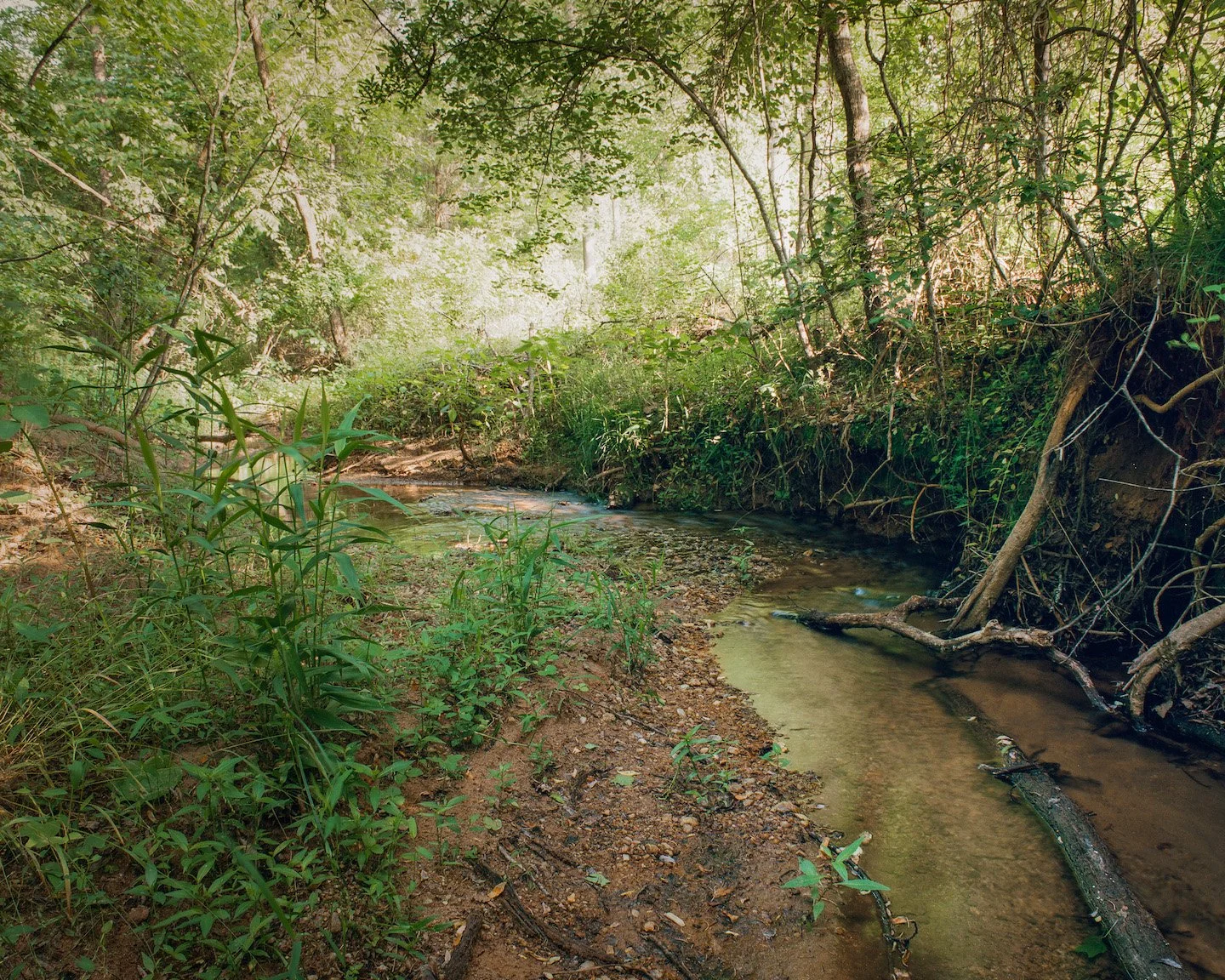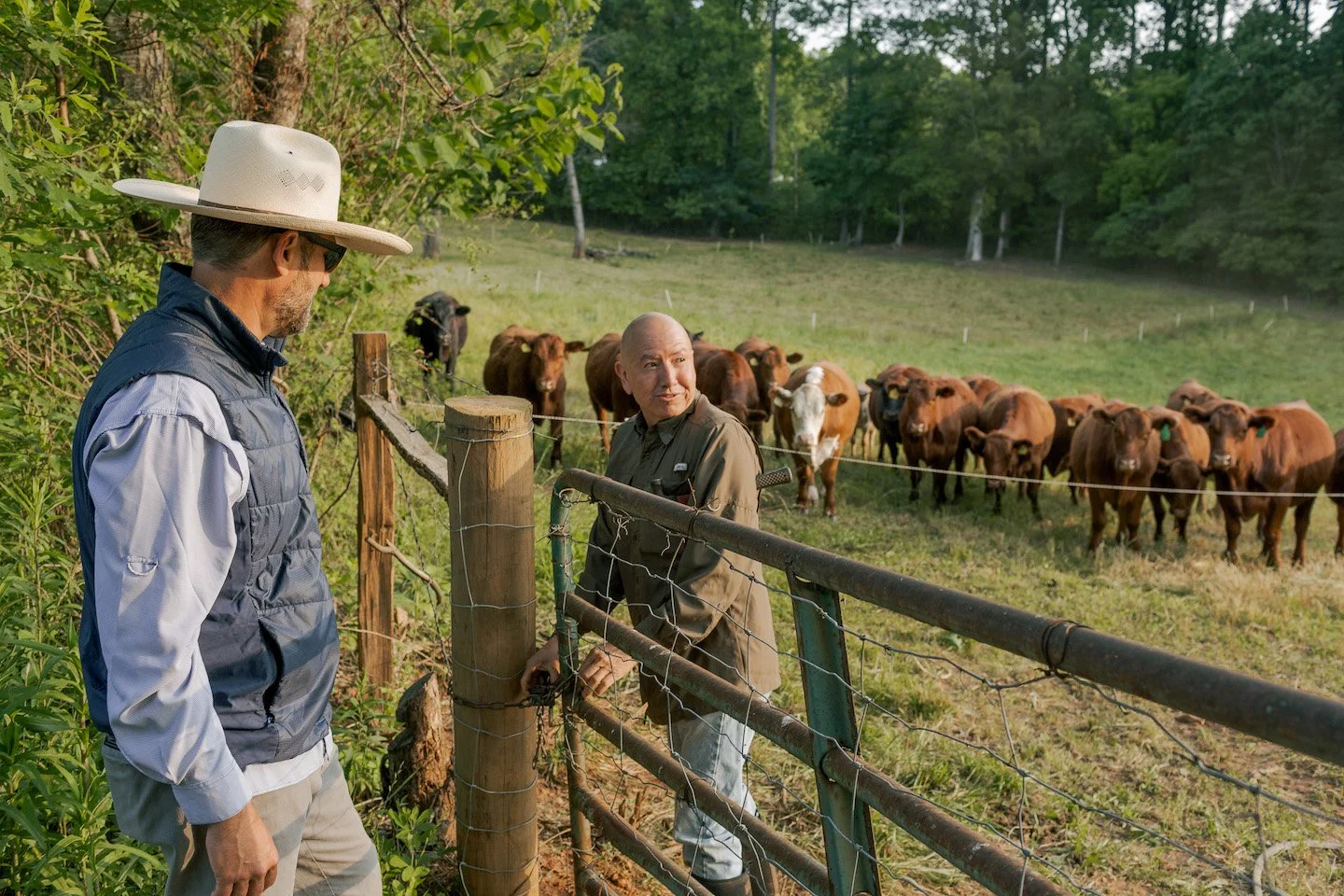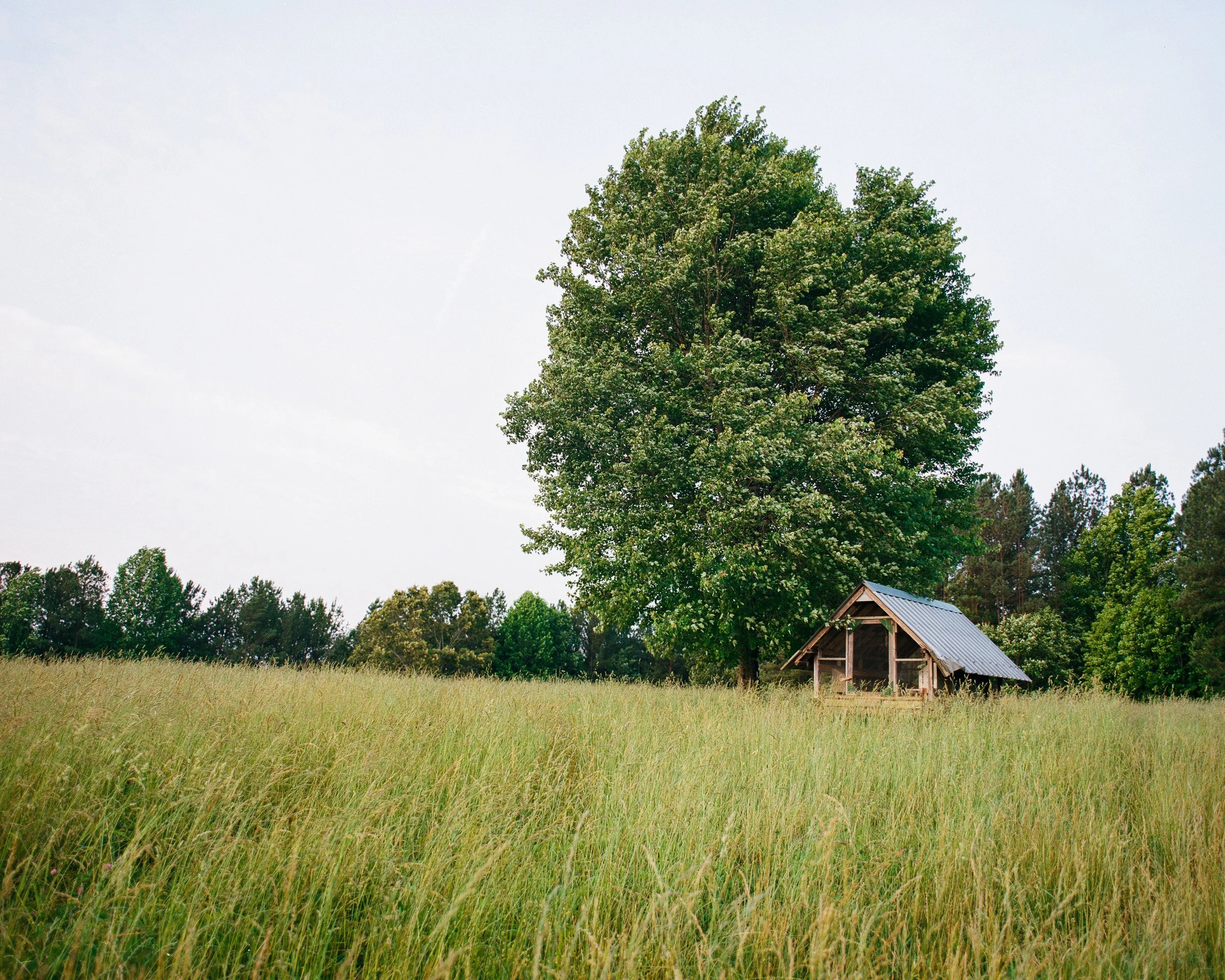
About
Located in the bedroom community of Dacusville in Easley, South Carolina, Kingbird Pastures was re-established in 2023.
The work of regenerative agriculture on this land has been happening for over 30 years—and we’re not new to this concept.
Regenerative agriculture uses time-tested farming techniques that allow a damaged ecosystem to heal itself, restoring nutrients to the soil and providing a safe environment for native flora and fauna. Even the livestock we raise contribute to this task while they enjoy a life of optimal health and dignity.

About Roddy Pick
Farmer and owner Roddy Pick didn’t find the way of the land until he started seeking out fresh food while running international logistics for a video game distributor out of Indianapolis.
He’d ride his bike on the Monon Trail to the farmer’s market, gathering ingredients for seasonal weekend dinners.
Eventually making a few garden beds in his backyard, Roddy was slowly experiencing the burnout of the corporate world and itching to lean into growing his own.
When the opportunity to purchase Greenbrier Farms in Easley came along in 2008, he moved to the Upstate of South Carolina. For nearly 15 years he implemented a rigorous livestock and produce program on 330 acres, dove headfirst into the rustic country wedding craze, managed a bevy of summer interns, and spent over a decade at the TD Downtown Greenville Saturday Market. He sold Greenbrier Farms in 2023 to start Kingbird Pastures to practice holistic agriculture and land management.
He’s served as Vice President of the Carolina Farm Stewardship Association and worked with higher education institutions like Furman and Clemson universities on research projects studying bird diversity, carbon sequestration, and food deserts. He’s partnered with the NRCS and the USDA Farm Service Agency on critical agroforestry and stream bank remediation projects. He has successfully placed Kingbird Pastures under Conservation Easement with Upstate Forever.
Roddy considers himself a grass farmer first. Using time-tested methods like rotational grazing, no-till farming, and zero pesticide or herbicide use, he always considers the health of the land, literally from the ground up.
And as co-owner of Fork and Plough in Greenville, Roddy supplies the farm-to-table restaurant with 100% grass-fed, grass-finished beef and an abundance of organically grown in-season produce and flowers.
About Regenerative Agriculture
At Kingbird Pastures, we're not interested in sustainable—because sustainable isn't enough. Our farm focuses on not simply sustaining but regenerating. Regenerative agriculture seeks to restore, not just maintain.
Kingbird Pastures uses regenerative farming practices to renew the local ecosystem from the ground up—literally. Starting with soil health, we create a healthy environment for native flora and fauna to thrive.
By creating a more resilient ecosystem, our land produces everything it needs to sequester carbon, renew the land, and produce healthy and nutritious meat.
Owner Roddy Pick with long time farm manager Frank Medina
About the eastern kingbird
Kingbirds are prevalent on the farm as we provide them with 175 acres of pesticide- and herbicide-free rolling pastures and treelines to stake their claim.
"Bold" and "fearless" are words often used when birdwatchers describe the dashing Eastern Kingbird. This large flycatcher is a member of the tyrant flycatcher family, a huge group of New World species that includes the Great Crested Flycatcher, Many-colored Rush-Tyrant, and Ochraceous Attila.
The Eastern Kingbird truly deserves its Latin name of Tyrannus tyrannus. On its breeding grounds, it can often be seen attacking and chasing much larger birds, such as Red-tailed Hawk and Great Blue Heron, that make the mistake of flying through its territory. This pugnacious tyrant flycatcher has even been known to knock larger birds off their perches, including much heavier, nest-marauding Blue Jays.
Contact Us
Whether you have questions about our farming practices, are looking for partnership opportunities, or want to purchase half- or whole-animal beef, send us a message to get started.





